Im Rahmen des 5. Netzwerktreffens twillo durfte ich über die Entstehung und die Erfahrungen mit unserer OER-Policy an der TU Graz reden – hier gibt es dazu die Folien:
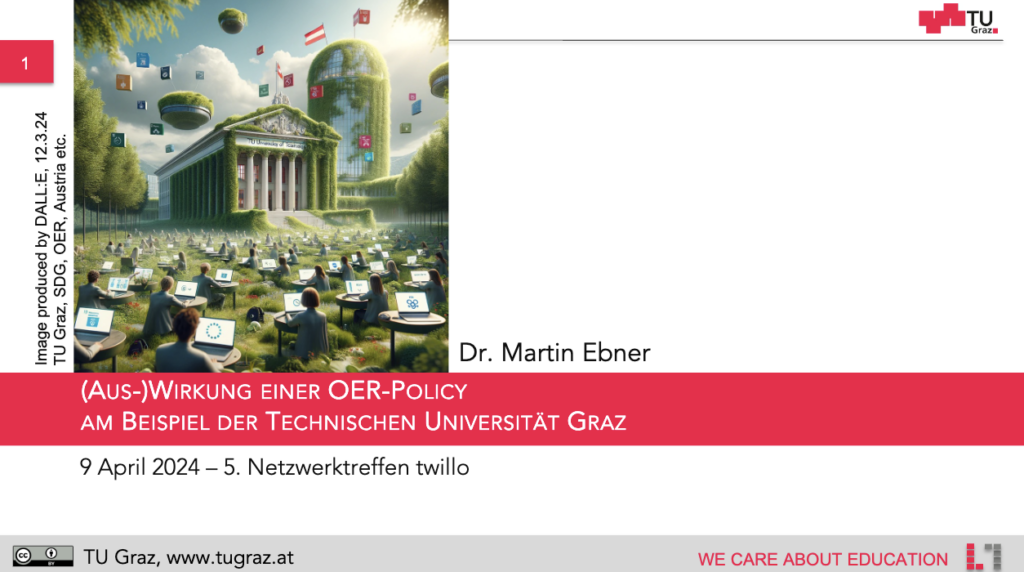

Digitale Lehre an und rund um der Technischen Universität Graz
I am thrilled to announce the CallForPapers with the deadline of 15th of May, for this year’s EdMedia Conference (1.7-5.7.2024), located in Brussels.
Find here the poster of the call:
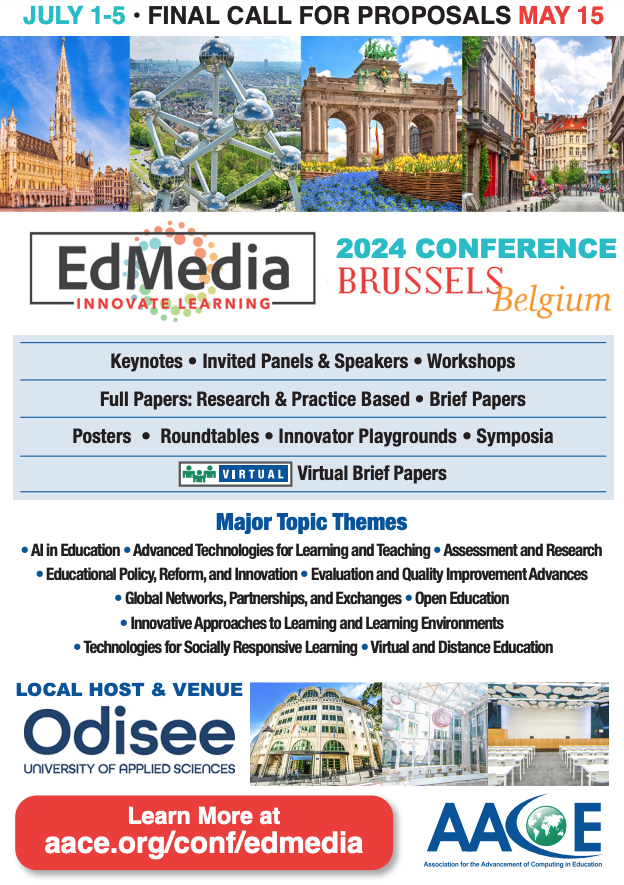
[Link to the conference homepage]
I would love to see you there 🙂
Together with Sandra I joined the “Aalto RDM & Open Science Training” and did a presentation on “Open Educational Resources (OER) at TU Graz – Institutional Integration and development of OER“.
Find here my slides:
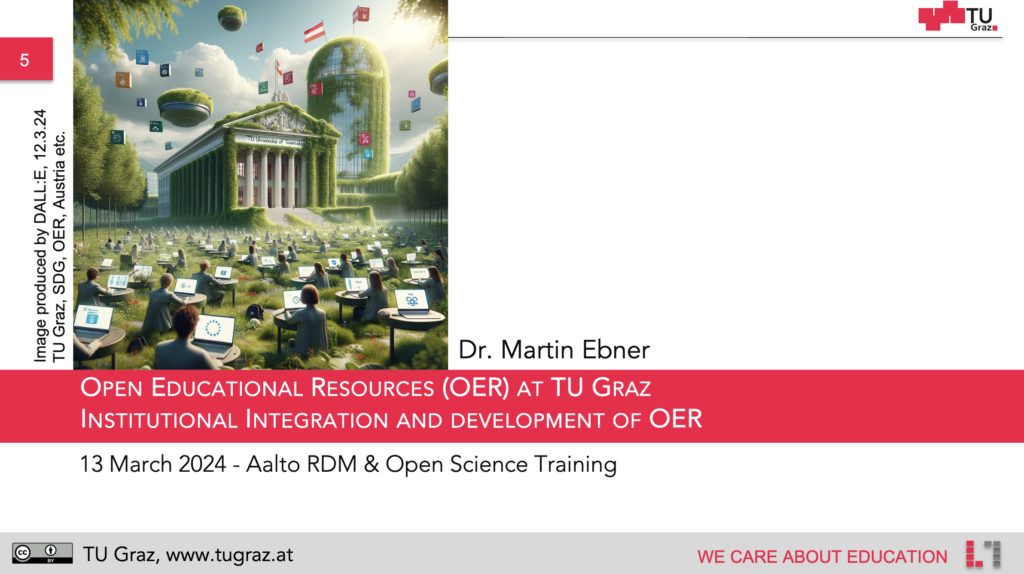
Reference: Ebner, M. (2024, März 13). Open Educational Resources (OER) at TU Graz – Institutional Integration and development of OER. Zenodo. https://doi.org/10.5281/zenodo.10812686
I am very happy to announce our webinar on “Higher Education OER Policies: Examples from institutional to European level” within the UNITE! alliance. Aalto University will be the host and for sure you can get interesting informations on OER from the perspective of Austria:
Open Educational Resources (OER) movement is rooted in accessible high-quality education and enables systematic change in teaching and learning content (https://oercommons.org/about). In this webinar, the topic of Open Educational Resources will be addressed from different strategic perspectives in higher education: Our experts will therefore address the institutional level, a country level and at the level of a European university alliance.
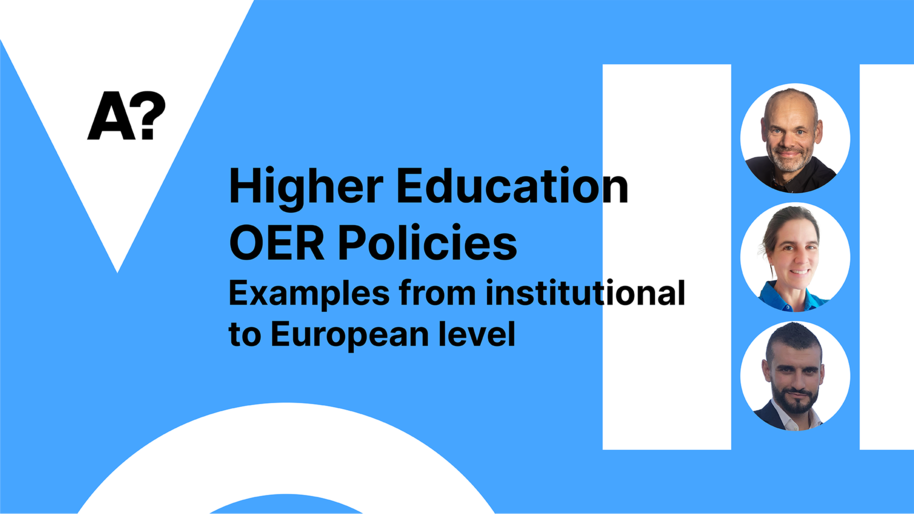
Find here the link and registration possibility for the webinar [link to the webinar]
Our research about “Exploring the Utilization of Online Resources and Experiences in Language Learning: A Study of Indonesian Students Learning German as a Foreign Language” is now online available.
Abstract: This study examines the frequency of online resource utilization among German language students at Universitas Negeri Malang (Indonesia) who are at the B1 level. The aim of the research is to investigate the usage of websites and applications during German language studies. Standardized questions were administered to a sample of 54 students to gather information regarding their engagement with online resources throughout their coursework. Additionally, feedback on selected online resources was collected and assessed. The findings reveal that Indonesian students demonstrate a preference for using videos featuring interviews with native German speakers, alongside the inclusion of supportive subtitles to enhance comprehension. However, a significant challenge arises due to the lack of materials specifically tailored for Indonesian learners, which also clearly indicate the intended language proficiency level.
[preprint @ ResearchGate]
[publication @ publisher’s homepage]
Reference: Ebner, M., Schön, S., Hidayat, E. & Ardiyani, D.K. (2023). Exploring the Utilization of Online Resources and Experiences in Language Learning: A Study of Indonesian Students Learning German as a Foreign Language. In T. Bastiaens (Ed.), Proceedings of EdMedia + Innovate Learning (pp. 1085-1090). Vienna, Austria: Association for the Advancement of Computing in Education (AACE). Retrieved July 17, 2023 from https://www.learntechlib.org/primary/p/222623/.
Our research together with the University of Malang about “Exploring the Utilization of Online Resources and Experiences in Language Learning – A Study of Indonesian Students Learning German as a Foreign Language” at the EDMedia and Innovative Learning 2023 conference in Vienna is now online available – here you can find the slides:
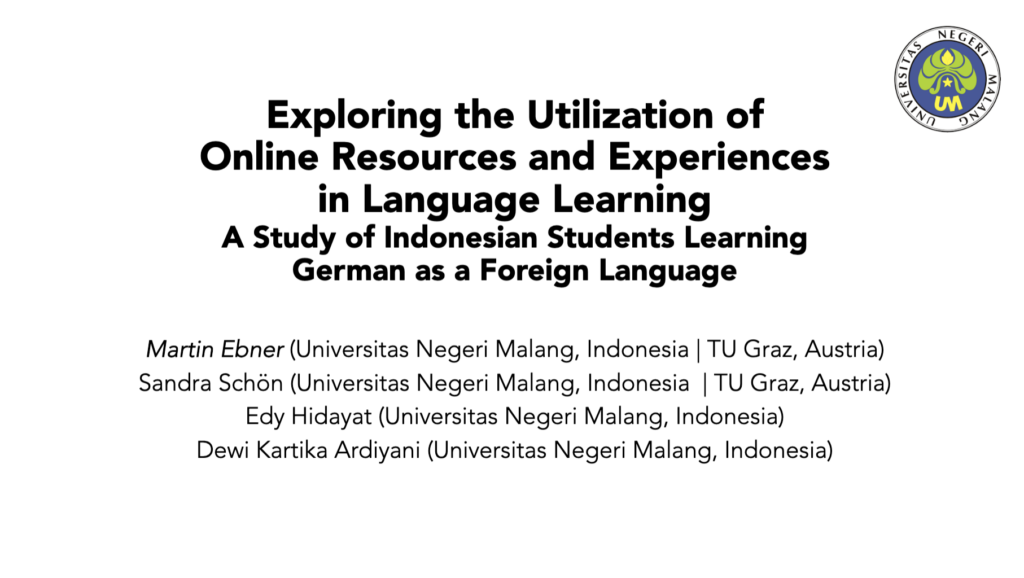
Our presentation about “Harnessing the power of artificial intelligence and ChatGPT in education -a first rapid literature review” at the EDMedia and Innovative Learning 2023 conference in Vienna is now online available:
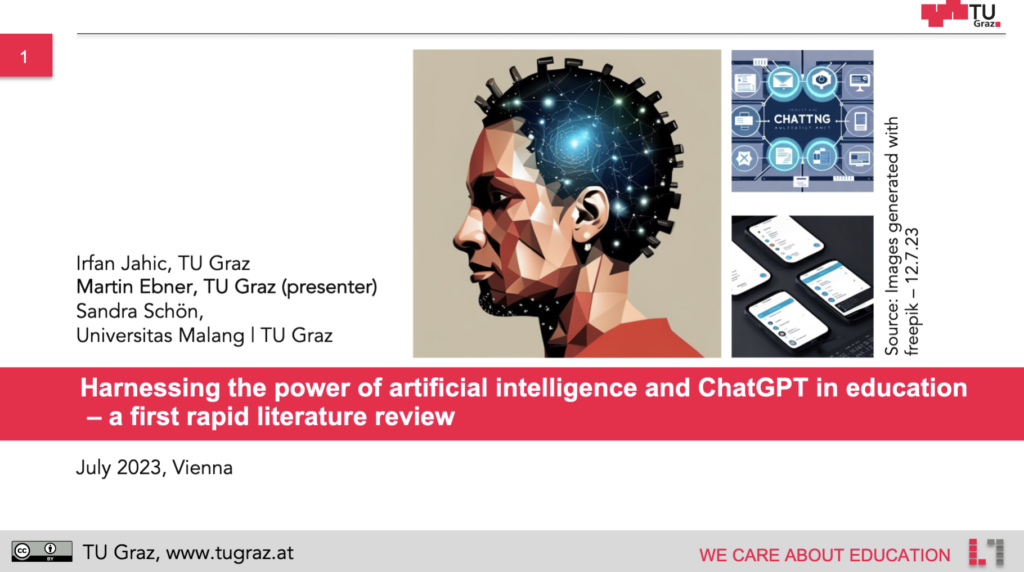
Im Rahmen der GMW 2023 Jahrestagung haben wir heuer einen Beitrag zu unserem KI-generierten MOOC gemacht. Die Präsentation mit dem Titel ““MOOC-ing ohne Mensch” Fallstudie zum KI- generierten MOOC “Societech”” steht nun online zur Verfügung:
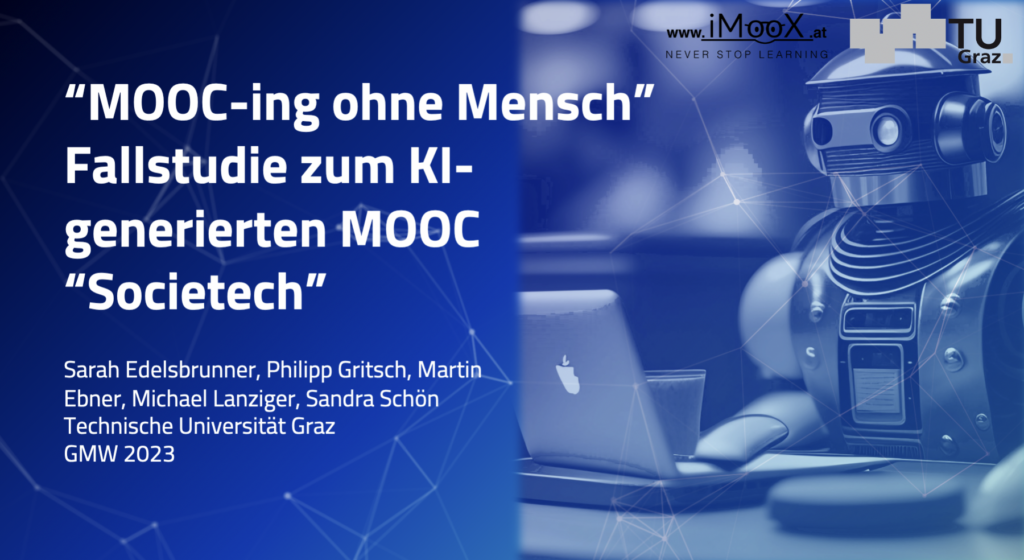
Our anual study results were traditional presented at the EDMedia and Innovative Learning 2023 conference in Vienna titled “Shifting Patterns in IT Equipment and Communication Application Preferences among Study Beginners: A Longitudinal Analysis at TU Graz, Austria“. Here are the slides:
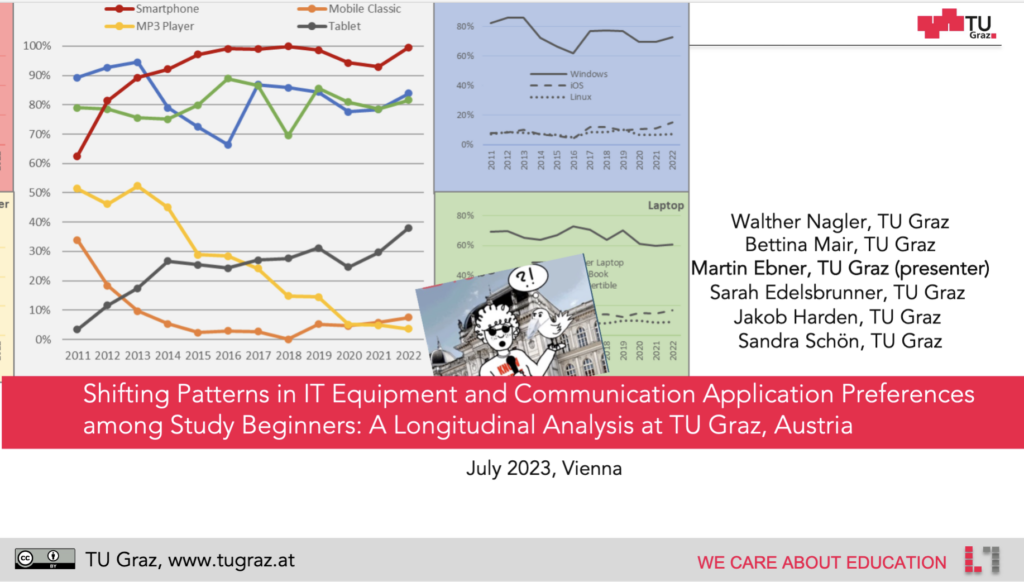
Der MOOC “Gesellschaftliche Aspekte der Informationstechnologie” auf iMooX geht nun in die siebte Woche. Diesesmal sind die Expertin Maria Eichlseder, die Experten Stefan More und Michael Pfeiffer und ich selbst an der Reihe. Das Thema IT-Security. Ich denke spannend genug um mitzumachen.
Darüberhinaus wage ich mich selbst einmal an eine Buchbesprechung, nachdem ich letztes Jahr den Bestseller Homo Deus gelesen habe, denke ich, dass es spannend ist vielleicht einmal diese Gedanken aufzugreifen und zu reflektieren.
Also unbedingt vorbei schauen und mitdiskutieren – der Einstieg in den MOOC ist jederzeit noch möglich.
[Link zum Kurs]